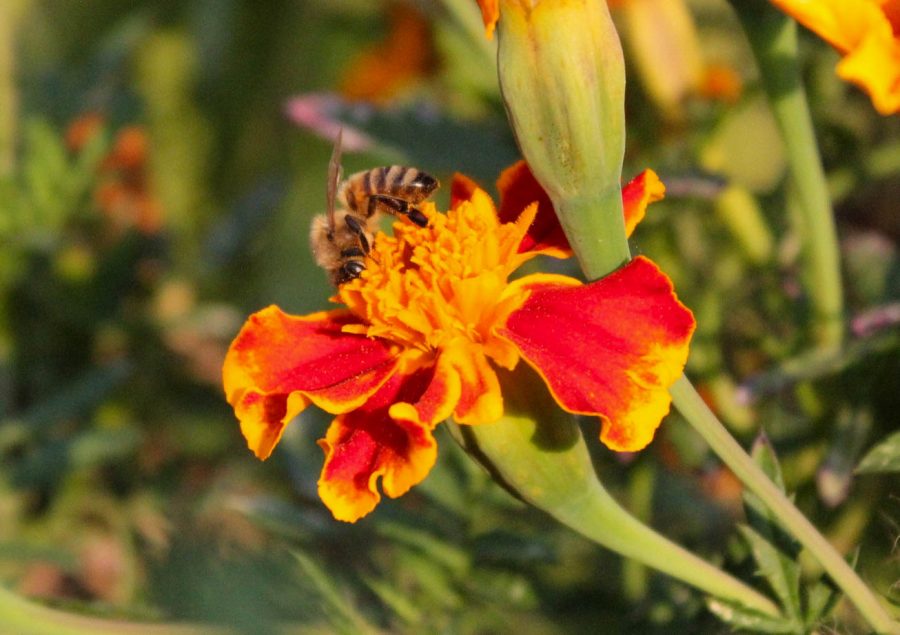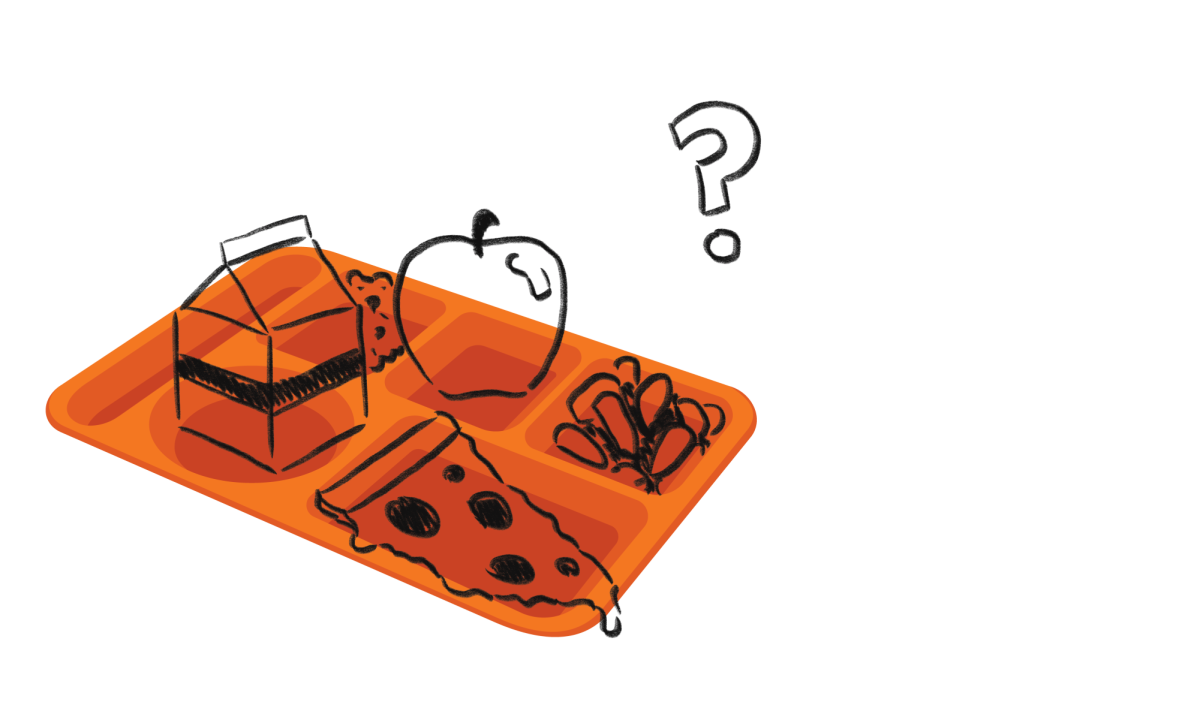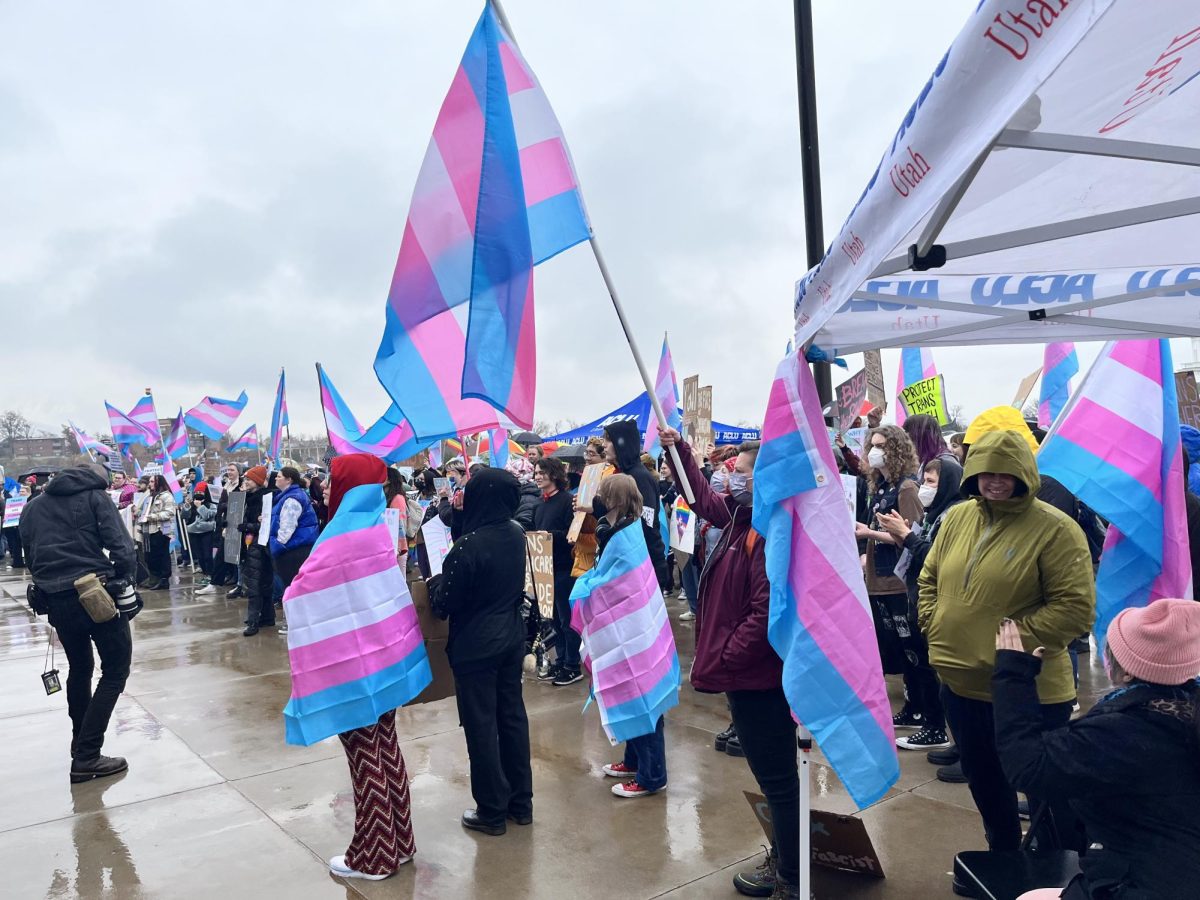Saifee: Saving the Bees in the Beehive State
A busy bee working at the Off-Broadway Wasatch Community Garden in Salt Lake City on September 15th, 2020. (Photo by Gwen Christopherson | The Daily Utah Chronicle)
February 20, 2021
In the 1980s, a fifth-grade class lobbied for the honeybee to become Utah’s official state insect, further cementing our identity as the Beehive State. Currently, Utah is home to over 1,000 native bee species — 25% of the bee species in North America. Bees are also hard-working, resilient and community-driven little critters — right in line with Utah’s values. Bees are an essential part of Utah’s culture and history.
But bees in Utah and across the globe have the odds stacked against them. Disease, habitat destruction and climate change, among other factors, are pushing these tiny creatures to their limits. Rep. Ashlee Matthews’s Pollinator Amendments, H.B. 224, would alleviate the stress on our bee populations through a community-driven approach. If the legislature decides to pass this bill, Utah’s environment and economy will benefit, and our bees will be better off.
H.B. 224 would create a three-year pollinator pilot program that would bolster local bee populations through public education and outreach while also funding the distribution of pollinator-friendly native plants and the installation of pollinator gardens. The public would have access to more educational workshops and planting guides about pollinator gardens. Additionally, the bill would provide grants to cover up to 25% of the cost of planting pollinator-friendly plants for private and public sector organizations.
Amy Sibul, a biology professor and the faculty advisor for the University of Utah’s Beekeeping Association, is thrilled by the possibility of this bill passing. She has been an avid beekeeper for years and would love to see more people involved in bee conservation efforts. She spearheaded the on-campus beehive installation and education efforts, culminating in the University of Utah’s recent Bee Campus certification. Sibul stated in an interview that Utah bees currently live in a “hellscape,” and that we need to do more to ensure their survival.
Bee populations are declining at a national level and in Utah. “Habitat destruction is putting an enormous strain on bees — they don’t have anywhere to live,” Sibul said. The excessive use of pesticides has devastating effects on bees, triggering Colony Collapse Disorder. And the environmental devastation caused by climate change is only going to make things worse. Sibul said that climate change will create a seasonal mismatch, meaning flowers will bloom before the bees emerge to pollinate them, resulting in negative cascading effects on our ecosystem. She also explained that climate change will make bees more susceptible to diseases and parasites such as the varroa mite. The bees need our support now before it gets even more challenging for them to survive.
The bees’ survival and our own are inexplicably linked. Bees are essential to the flower, medicine and clothing industries as well as agriculture. They support the annual $20 billion crop yield in the United States. In Utah alone, they produced $1.3 million worth of honey in 2019 and their “pollination services” are valued at $1,000 per acre. These busy bees are invaluable to our local economy and the very foundation of our society’s needs.
Right now, Utah, among other states, depends on the transportation of honeybees to fulfill the pollination needs of our agricultural industry. However, transportation is extremely harmful to bees. The insects suffer from population loss, decreased long-term survival and increased infection rates when humans move them from ecosystem to ecosystem. H.B. 224 can help Utah wean off bee transportation by nurturing native bee populations.
The increased planting of native species, which this bill would facilitate, will also benefit our environment’s resilience. This past year, Utah has seen one of its worst wildfire seasons, costing taxpayers millions of dollars in damages. But native plants have proven to be particularly wildfire resistant — meaning H.B. 224 would increase native bee populations and wildfire resistance, which in turn would help Utah’s economy and environment.
Most of all, H.B. 224 has already sparked and would continue to foster community awareness, dialogue and education about the importance of native bees and plant species. “Providing a healthy environment for native bees is as simple as planting pollinator-friendly flowers in a part of your yard or sectioning off patches of soil for native bees to burrow in,” Sibul said. She noted with enthusiasm that “native bees are adaptable and resilient to our urban landscape; they just need some help.”
H.B. 224 would have lasting positive effects on our bee populations, environment and economy. Amalia Friess, the president of the U’s Beekeeping Association, couldn’t have said it any better: “People don’t realize how intertwined ecosystems are, but once they do, they realize how supporting bees supports the entire ecosystem.”













